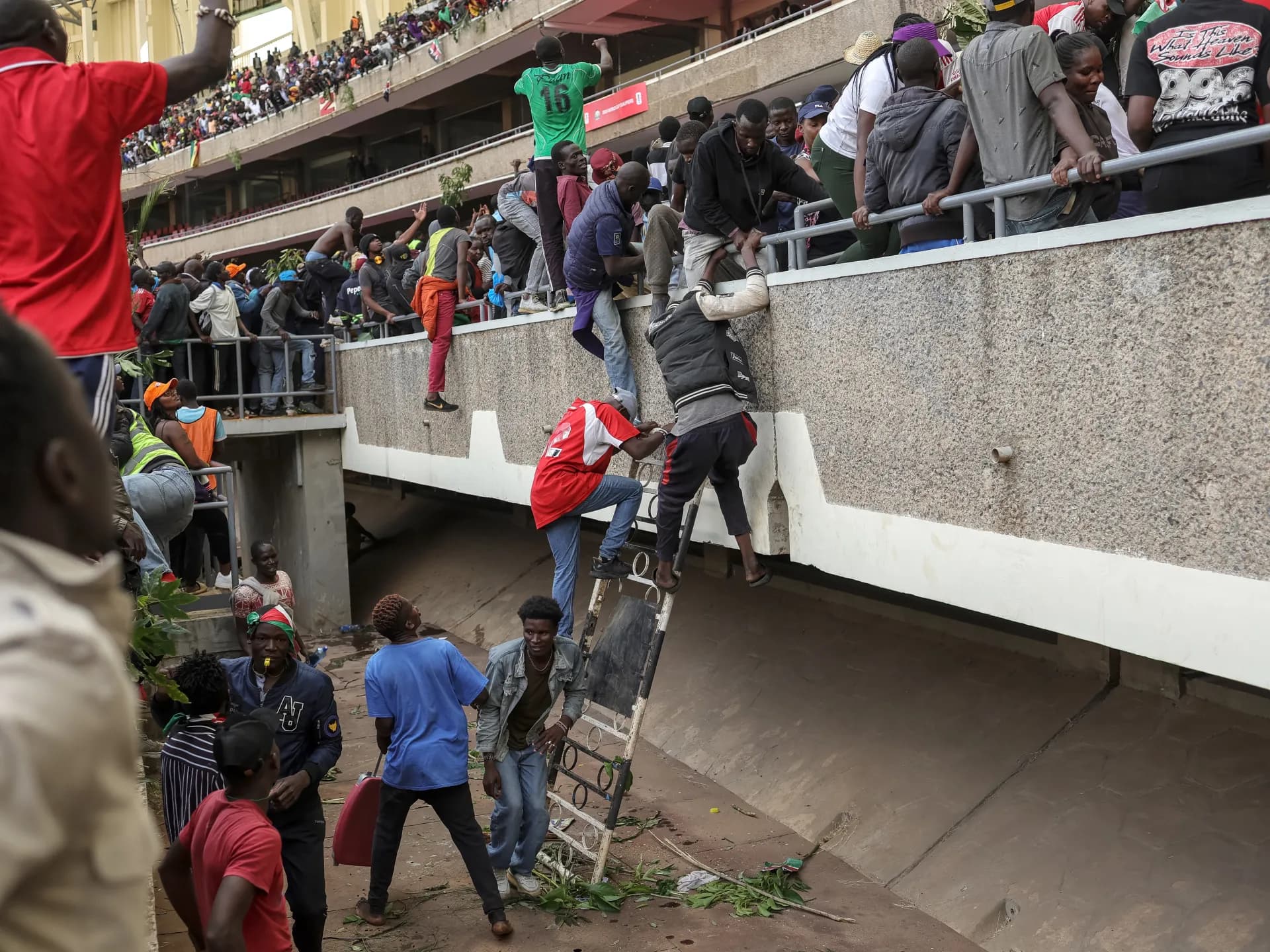We're loading the full news article for you. This includes the article content, images, author information, and related articles.
At least three people have died and several others injured after police used live ammunition and tear gas to disperse thousands of mourners gathered at Moi International Sports Centre, Kasarani, for the public viewing of former Prime Minister Raila Odinga's body.

Tragedy struck on Thursday, October 16, 2025, in Nairobi as police opened fire and deployed tear gas to disperse an overwhelming crowd of mourners at the Moi International Sports Centre, Kasarani. The gathering was for the public viewing of the body of former Prime Minister Raila Odinga, who passed away on Wednesday, October 15, 2025, in India. Human rights group Vocal Africa reported that three bodies with gunshot wounds were taken to the city's main mortuary. Local media outlets have indicated a potential fourth fatality, with scores more injured in the ensuing chaos.
The exact nature of the ammunition used by the police remains unconfirmed, though Vocal Africa stated the deceased sustained gunshot wounds. The incident unfolded after thousands of supporters, eager to pay their last respects to the revered political figure, overwhelmed security at the stadium, which has a seating capacity of approximately 60,000.
Raila Odinga, a towering figure in Kenyan politics, died at the age of 80 from a cardiac arrest while undergoing medical treatment in Kochi, Kerala, India. His body arrived at Jomo Kenyatta International Airport (JKIA) on Thursday morning, where large crowds had already gathered, briefly disrupting flight operations. The public viewing was initially scheduled for Parliament but was relocated to the larger Kasarani stadium due to the anticipated turnout.
This incident highlights persistent concerns regarding police handling of public gatherings in Kenya. The Kenyan Constitution, under Article 37, guarantees the right to assemble, demonstrate, picket, and present petitions peacefully and unarmed. However, the Public Order Act requires organisers to notify the police three to fourteen days in advance. A recent High Court ruling on Wednesday, October 16, 2025, declared the use of excessive force, including live ammunition, rubber bullets, and tear gas against peaceful protesters, unconstitutional. This ruling followed widespread protests in 2024 against the Finance Bill, during which human rights groups documented police brutality, including fatalities and injuries.
Vocal Africa, a human rights organisation established in 2016, focuses on advocating for human rights and social justice, including monitoring police conduct during protests. Their immediate reporting on the fatalities underscores the urgency of addressing police accountability. Critics argue that despite constitutional provisions, the Public Order Act and its application often lead to confrontations, with police frequently resorting to force even in non-violent assemblies.
The tragic events at Kasarani carry significant implications for public trust in law enforcement and the right to peaceful assembly. The use of lethal force during a mourning ceremony for a national figure could further inflame public sentiment and deepen divisions. It also raises concerns about the state's capacity to manage large public gatherings without resorting to excessive force, especially in a nation with a history of politically charged demonstrations.
Crucial questions remain unanswered, including why police resorted to live ammunition, if confirmed, and whether all non-lethal crowd control measures were exhausted. The Independent Policing Oversight Authority (IPOA) is expected to launch an investigation into the incident, given its mandate to investigate police misconduct.
The nation will be closely watching for official statements from the National Police Service and the government regarding the Kasarani incident. The outcome of any investigations by IPOA and the government's response to the High Court ruling on police use of force will be critical in shaping future public order management strategies. The ongoing funeral arrangements for Raila Odinga are also expected to draw significant public attention, with authorities under pressure to ensure peaceful proceedings.
Keep the conversation in one place—threads here stay linked to the story and in the forums.
Sign in to start a discussion
Start a conversation about this story and keep it linked here.
Other hot threads
E-sports and Gaming Community in Kenya
Active 9 months ago
The Role of Technology in Modern Agriculture (AgriTech)
Active 9 months ago
Popular Recreational Activities Across Counties
Active 9 months ago
Investing in Youth Sports Development Programs
Active 9 months ago
Key figures and persons of interest featured in this article